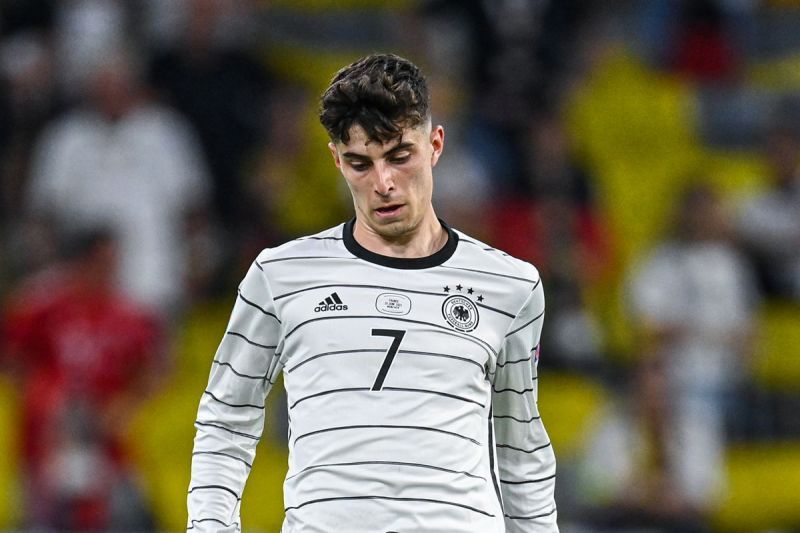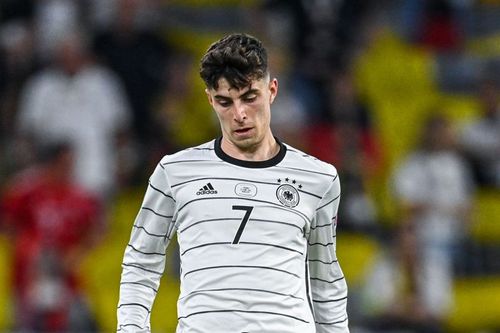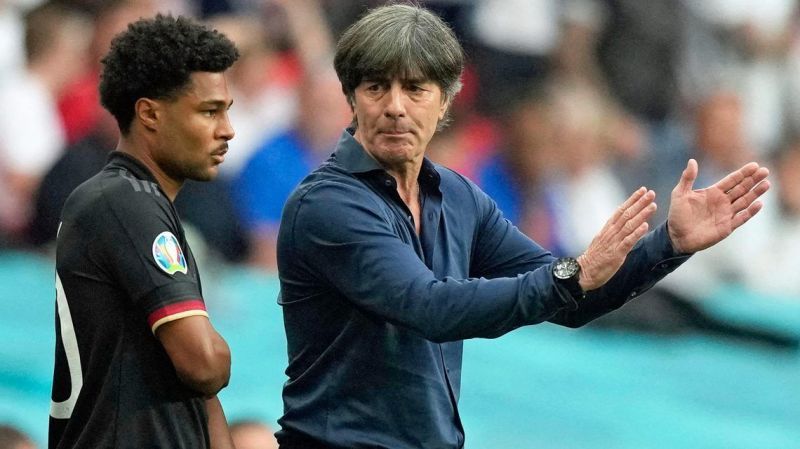
3 reasons why Germany failed at Euro 2020

Three-time champions Germany bowed out of the Euro 2020 after losing 2-0 to arch-rivals England at the Wembley Stadium in London yesterday. After the disappointment of an early exit in the 2018 World Cup, Germany yet again failed to live up to the expectations of their supporters.
The Germans qualified from a very tough group also consisting of France, Portugal and Hungary. However, they failed to beat their old enemies in the Round of 16. Germany’s loss meant that their coach Joachim Low departed on a low note after his 15-year long association with Die Mannschaft.
On that note, we take a look at the three key factors which led to Germany failing to reach the Euro 2020 quarter-finals.
3. An over-dependence on the wing-backs to launch attacks

Germany played with a 3-4-2-1 formation in the tournament and were always dependent upon their wing-backs, Joshua Kimmich and Robin Gosens, to start their attacking moves.
Kimmich was probably Germany’s most consistent performer in the tournament and was tireless with his overlapping runs on the right flank. Gosens, on the other hand, played very well in the first two matches but failed to deliver in the last two.
England took notice of the threat Germany posed on the wings and started with a 3-man defence to counter it. Kieran Trippier’s overlapping runs meant that Gosens was primarily busy defending and as a result, Germany could hardly make any attacking move through the left.
Kimmich started the match brightly, but could not make any lasting impact on the game. As a result, Germany struggled to pose a serious threat to the English defence on the right flank.
2. Some questionable decisions regarding team selection and tactics

Low’s decision to leave out Serge Gnabry and start with Timo Werner on Tuesday was a questionable one, as Gnabry is quite evidently the more skillful of the two. One could argue that Low wanted Germany to play defensive, counter-attacking football and, therefore opted to play Werner.
The Chelsea forward is capable of making darting runs into the empty spaces in the opposition half. However, Werner failed to make his presence felt and had a forgettable outing against England.
Moreover, Gnabry was not played in his preferred position even when Low brought him on. The young German usually excels while playing as a wing-forward and likes to cut in from the flanks.
However, his dribbling skills were not utilized properly throughout the tournament as he played as a centre-forward. Germany hardly had any movement through the inside-right and inside-left channels in their 1-0 loss against world champions France.
Things partially improved in the subsequent matches with Kai Havertz becoming increasingly mobile and effective, but Gnabry still remained under-utilized and finished the tournament without scoring any goal.
Havertz, on the other hand, showed great opportunism and scored a couple of goals. Low probably should have played Havertz at the centre of the attack and Gnabry as a wing-forward to utilize them more judiciously.
1. A tendency to concede goals from counter-attacks
Their old habit of conceding goals against counter-attacking, pacey opponents that had plagued Germany in the last World Cup, resurfaced in the Euros too. The former world champions conceded goals in the same manner against Portugal and Hungary at Euro 2020.
France also managed to score against them in a similar fashion, but the goal was ruled out because it was deemed to be offside. Had Germany not conceded two unnecessary goals against Hungary, they could have won that match and managed to avoid playing England in the Round of 16.
Germany depended a lot on veteran Mats Hummels and the 32-year old did come up with some outrageously good tackles throughout Euro 2020.
However, he was also responsible for a couple of goals Germany conceded in the tournament. He seems to have lost a bit of pace and struggled at times to cope with the darting runs of the opposition forwards.